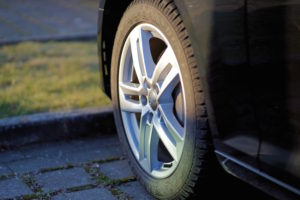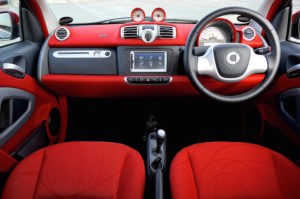VIEW OUR COMMERCIAL
As seen on TV

CHOOSE THE EASY OPTION FOR YOUR INSURANCE, WE’LL GET YOU A QUOTE IN NO TIME AT ALL.
Posts for: July2019
There are two reasons you might consider taking out excess protection car insurance. The first is to protect yourself from any unaffordable bills if you do need to claim your car insurance. The second is to save yourself money on your car insurance premium. Want to know how it works? Find out more with our quick guide.
Firstly, what is an excess?
The excess is the amount you have to pay if you claim your insurance. In most cases, you don’t make a payment to your insurance company. Instead, the excess amount is deducted from the final settlement that the insurance company agrees to pay.
For example, your car insurance has an excess of £400. You have an accident, and the repair bill comes to £900. Your car insurance provider will pay out £500, which is the £900 bill less the £400 excess.
Many insurance policies include an excess, including home insurance and car insurance.
Why is my car insurance excess so high?
Insurance providers set an excess to try to put customers off claiming on the insurance policy for smaller amounts. They do it because sorting out small claims can cost them a lot of money in administrative time and effort.
The amount of excess set by your insurance company is compulsory with no option to reduce it. This excess varies depending on your insurance company and circumstances. It’s typically somewhere between £50-£300.
When you get a quote for car insurance, this will typically also include a voluntary excess in addition to the compulsory excess. This is an extra excess you can pay, and you can control the level. Generally, the higher the voluntary excess, the lower your premium will be. Voluntary excess can normally be anywhere between £0-£750.
Remember, you’ll need to add together the compulsory and voluntary excess figures to see how much you will have to pay yourself if you make a claim. For example, a compulsory excess of £150 and a voluntary excess of £250 means you’ll have to pay out the first £400 for any claim you make.
Beware of high voluntary excesses on cheap car insurance from comparison sites
Insurance companies try to get your attention on price comparison websites by offering the lowest premiums they can. This is often achieved by setting the voluntary excess high. Watch that you don’t get caught out by carefully checking both the compulsory and voluntary excess before you buy. Even if you specify a lower voluntary excess, you may still be offered premiums with much higher excess amounts.
What is the maximum car insurance excess?
The maximum voluntary excess you can set varies between providers but usually is somewhere between £250-£750.
Next, how does excess protection car insurance work?
If you hold an excess protection car insurance policy, this will cover the costs of your excess on your regular car insurance.
For example:
You have an excess of £500 on your car insurance policy. You have an accident, and the repair bill comes to £1,500. Your car insurance policy will pay out £1,000 with the first £500 being your responsibility. But your excess protection policy will reimburse you that £500. That means you have peace of mind that there won’t be any unexpected big bills to cover.
Do I need excess protection car insurance?
Insurance is all about protecting you from financial risk. To find out whether you need excess protection car insurance, ask yourself:
- Can I afford to pay the excess on my car insurance if I need to make a claim? If you can’t easily get hold of the money, you could be left in a tricky situation unable to pay the repair bill and without your car.
- Am I happy to take the risk of needing to pay out my excess? Excess protection will reassure you that there will be no unexpected big bill.
What about if an uninsured driver hits me?
Normally, if you have an accident and you’re not at fault, the other party’s car insurance takes care of the excess. But what if an uninsured driver hits you? In this case, you have to claim for the repair on your insurance and may have to pay the excess. Check your car insurance policy as some insurance companies automatically offer to protect your excess. If not, excess protection car insurance could be a valuable extra layer of financial protection.
How can excess protection car insurance save me money?
Savvy shoppers are increasingly turning to excess protection car insurance and discovering that two layers of car insurance can be cheaper than one. Yes, you read it right. Taking out two separate layers for your car insurance could save you money. That’s because increasing your excess is a handy trick that can help to bring down your car insurance premium. But rather than leaving yourself exposed to hefty excesses if you do need to make a claim, you can also take out excess protection car insurance.
You could save ££s as long as the amount you pay for your excess protection insurance is lower than the amount you save off your regular car insurance by increasing the voluntary excess.
Are there any downsides?
Bear in mind that you’ll need to make two separate insurance claims if something does happen. You’ll make one claim on your regular car insurance, where you’ll have to pay the excess. Then you’ll need to complete an additional claim on your excess protection policy to have the cost of the excess reimbursed.
Finally, find out more
If you’re interested in excess protection car insurance, get in touch with our friendly team at Easy2Insure. Whether you want to get smart with cheaper car insurance or want to protect yourself from unexpected bills, we can help. We’ll shop around on your behalf to source the best value excess protection. And that can give you peace of mind or even save you money on your car insurance annual premium. Call us on 0800 917 9522 or get a free quote.
If you’ve got a car, buying car insurance is a must-do. But it’s not something most of us look forward to. Not only would we rather be spending our money on holidays or shoes, but buying insurance can also be confusing. With so many features to choose from, for example, protected no claims bonus and legal expenses, it’s hard to decide what cover you really need. Sometimes it’s not until you have to make a claim that you realise you don’t have the level of protection you expect.
Don’t worry; help is at hand. To help cut through the confusion, we’ve put together this Easy2Understand guide. Next, read on to discover 14 essential features to look out for when you buy your car insurance policy, including:
- Firstly what every car insurance policy must include.
- Secondly, optional features that many drivers choose for added financial peace of mind.
- Finally, nice-to-have extras that many drivers can do without.
Four must-have car insurance features
1) Third-party cover
This is the bare minimum level of cover for all vehicles to legally drive on the road. For example, if you have an accident, it pays out the costs involved for the other party (or parties), but you won’t get anything. If you buy nothing else, make sure you have third-party cover.
2) Third-party, fire, and theft
This pays out as above, however it will also reimburse you if your car is stolen or it is damaged in a fire.
3) Comprehensive car insurance
Again, this pays out as above. However, it will also pay your car repair bills or the market value of your car if it is written off in an accident that you are responsible for. This is the most popular type of car insurance cover, and it’s not always a more expensive option. for example, it could cost you less than the more basic third-party cover because taking out comprehensive cover is considered less risky.
4) Free courtesy car
Almost every driver will rely on their vehicle to get to work, get the kids to school, or to carry on with everyday life. If your car is damaged, a courtesy car keeps you on the move. Unless you have access to an alternative vehicle or can use public transport instead, watch out for limits that could make life tricky. For example, some policies will only provide a courtesy car for a limited time, and that may not be enough. And some policies won’t offer you a courtesy car if your car is written off or stolen. That can potentially leave you without a car while your claim is being settled.
Seven important optional features that buy you greater peace of mind
1) Legal expenses
If you have an accident that isn’t your fault, you can claim for your expenses like hire car costs and personal injury. If you have legal expenses included in your car insurance, your legal fees to make these claims are covered.
2) Breakdown cover
Including car breakdown cover in your car insurance can be cheaper than buying it separately. It reassures you that if you do break down, you can get help quickly and at no extra cost. Bear in mind though that any replacement parts that are required are not included. You’ll have to pay for these yourself.
3) New car cover
If your car is less than 12 months old and you are the first registered owner, most car insurance policies will replace your vehicle with a brand new one if it is stolen or written off. If your car is older, or you’re not the first registered keeper, you might want to specify new car cover to ensure you’ll get a new car as a replacement.
4) Expenses, such as hotel costs
If you have an accident and your car can’t be driven, some car insurance policies will cover the necessary hotel costs up to a certain amount. If you frequently travel long distances, this can be a useful feature.
5) No claims discount protection
Staying claim free can make a massive difference to the cost of your car insurance. If you do make a claim, the cost of your insurance can sky-rocket the next time you come to renew. Look for car insurance with no claim discount protection to ensure you can still benefit from the savings even if you have to make a claim. Bear in mind that this feature is only useful if you have already built up several years of no claim discount. And you should also be aware that your premium can still increase when you come to renew. That’s because the fact you have made a claim will still be taken into consideration when the premium is calculated.
6) Personal possessions cover
This covers any items (e.g. a phone or bag) which are stolen from or damaged while in your vehicle. Watch out for restrictions. For example, some insurers may specify that you can only claim if the item was in a locked glove box.
7) Windscreen cover
This will pay for your windscreen to be repaired or replaced if needed. It’s often separate to your main car insurance, so you won’t lose a no-claims bonus if you do claim for a windscreen
Three nice extras to add-on to your car insurance
1) Cover driving abroad
If your car insurance specifies you’re covered abroad, you can enjoy the same level of cover as you have in the UK when you drive your car overseas. Remember to check the small print for countries that may be excluded though. And remember, insurance doesn’t automatically entitle you to drive in every country. Make sure you check local laws regarding what driving licence is required.
2) Personal accident cover
This add-on can boost the amount you’ll receive if you suffer a serious accident in the car. Watch out for restrictions on what injuries are included as some policies are limited.
3) Replacement key cover
If you lose your keys or they are stolen, it can mean a serious headache and significant costs. You can include replacement key cover for total peace of mind that the costs, including alternative transport, are paid for.
Finally, it’s Easy2 find cheap car insurance
Buying car insurance shouldn’t cause a headache. Instead, it should buy you peace of mind that you’re covered if something does go wrong. If it’s time for you to renew your car insurance, get in touch with our friendly team. First, we’ll shop around on your behalf to find you the best value policy out there. Next, we’ll make sure no nasty surprises are lurking in the small print. Finally, we’ll make sure you’re not paying for any cover you don’t need. Call us on 0800 917 9522 or get a free quote now.

















